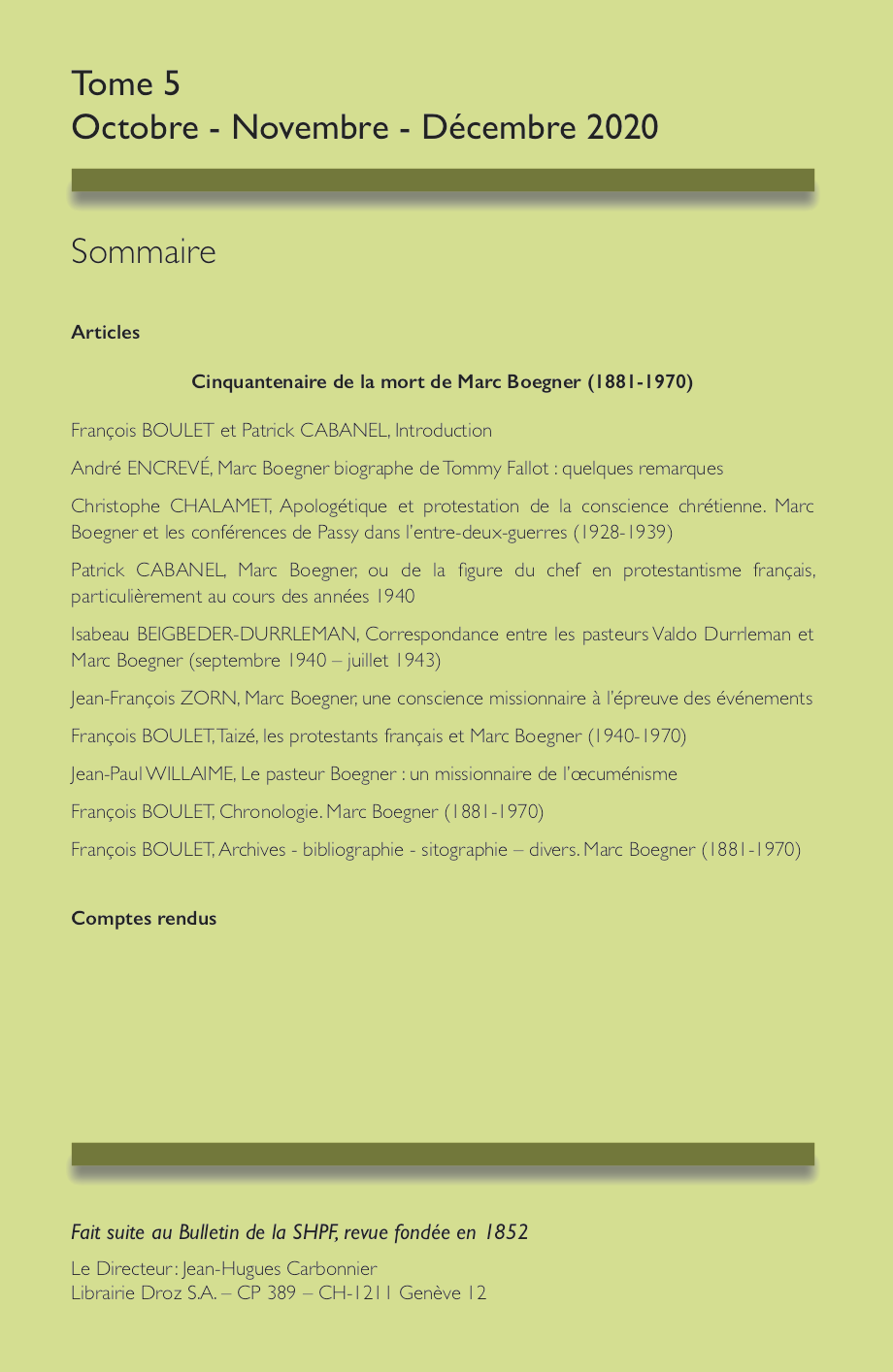Taizé, les protestants français et Marc Boegner (1940-1970)
Abstract
For French Protestants, and in particular for Marc Boegner, pastor and president of the Fédération Protestante de France, the Taizé community represented a cause for considerable amazement as well as concern. Taizé was a point of contention within the Huguenot camp. Some were enthusiastic, others were intrigued, but the great majority was simply irritated by this monastic community with its “brothers” of Protestant background (some of them even pastors) who seemed to be flirting with Catholicism during the years 1948-1970. Boegner, who had committed himself to the “call to ecumenicity,” gradually became better acquainted with the “community” and visited the “hill” of Taizé at least six times between 1951 and 1966. His initial astonishment at Taizé’s “errors” and “infelicities” gave way to a liking, in particular through the spirituality of brother Roger Schutz. This paradox is worth exploring on the historical level : from the anti-Taizé polemics of French Protestants to president Boegner’s eventual enthusiasm for Taizé as “a high place of French and international Protestantism,” representing a king of prophecy of a restored, ecumenical unity and, using Boegner’s own words, a “great grace”. Drawing on untapped archival records, this article offers a precise reconstruction of the relationship between Taizé, French Protestants, and Marc Boegner for the thirty-year period from 1940 to 1970.
How to Cite
More Citation Formats
Issue
Most read articles by the same author(s)
- François Boulet, Christian MAILLEBOUIS, Didier PERRE, Complaintes des huguenots en Velay. Mazet-Saint-Voy, 1776-1838, Revue d'histoire du protestantisme: Vol. 5 n° 1 (2020):
- François Boulet, Silvia Scatena, Taizé, une parabole d’unité. Histoire de la communauté des origines au concile des jeunes, Revue d'histoire du protestantisme: Vol. 6 n° 3 (2021): Varia
- François Boulet, Patrick Cabanel, Introduction, Revue d'histoire du protestantisme: Vol. 5 n° 4 (2020):
